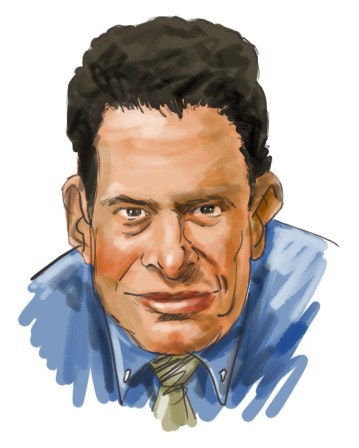According to a filing with the SEC, Henry Davis, a Board member at Kansas City Southern (NYSE:KSU) bought 67,300 shares of the company’s stock on November 16th at an average price of $73.92 per share. This investment of about $5 million gave Davis a total of about 172,000 shares of the company’s stock, so it represented a large increase in his holdings as well as being a substantial commitment of capital. We like to track insider purchases because studies show that stocks bought by insiders tend to outperform the market (here is our review of studies on insider trading). We think that this is because insiders already have an economic connection to the company, and should only forgo the benefits of diversification if they are very confident in the stock’s prospects. Our database of insider filings shows that Davis had last bought shares in the summer of 2009 at an average price of $22.88 per share; the stock is up enormously in the last 3+ years.
Kansas City Southern experienced a 6% increase in revenue in the third quarter of 2012 compared to the third quarter of last year; at that time, its revenues for the year were 7% higher. Net income for the quarter was down slightly, though this was primarily due to a higher effective tax rate (income before taxes, and after correcting for an insurance gain, were about flat). Earnings per share in the first nine months of 2012 have been running higher than in the same period a year ago. The company has been growing its business both in the U.S. and in Mexico (in the third quarter, 46% of revenue came from Mexican operations). Commodities shipments, one of the largest sources of business, were down slightly but high growth in intermodal and automotive shipments drove the better top line numbers. The stock currently trades at 22 times trailing earnings, with Wall Street analysts expecting modest earnings growth in 2013. This still leaves the stock at a fairly high forward earnings multiple, however.
Billionaire Ken Fisher’s Fisher Asset Management sold some of its shares in Kansas City Southern during the quarter, but at 1.2 million shares it still had the largest position in the stock out of the investors that we track in our database of 13F filings. Fellow billionaire Steve Cohen was more bullish, with the 240,000 shares in SAC Capital Advisors’ portfolio at the end of September representing a large percentage increase over three months earlier (see more of Steve Cohen’s stock picks). We’d also note that Warren Buffett likes the railroad industry, as Berkshire Hathaway completed the acquisition of large railroad Burlington Northern Santa Fe in 2010.
There’s certainly a variety of publicly traded railroads that investors can compare Kansas City Southern to. Union Pacific Corporation (NYSE:UNP), Norfolk Southern Corp. (NYSE:NSC), and CSX Corporation (NYSE:CSX) are larger U.S.-focused railroads. Norfolk Southern and CSX are much better values in terms of P/E multiples, at 10 times forward earnings estimates. We looked at CSX in October. These companies saw lower revenue and earnings in their most recent quarter compared to the same period in the previous year, though Norfolk Southern’s business saw a steeper decline; its net income, for example, was down 27%. Read an analysis of Norfolk Southern’s earnings report. Union Pacific, the largest of these peers by market cap at $57 billion, has gotten good growth on both top and bottom lines and it is priced at only a moderate premium to Norfolk Southern and CSX.
There are also potential railroad stocks to be found north of the U.S.: Canadian Pacific Railway Limited (NYSE:CP) is billionaire Bill Ackman’s Pershing Square’s largest holding, with Canadian National Railway (NYSE:CNI) another possibility. Canadian Pacific looks pricy at 23 times trailing earnings, while Canadian National carries a significant discount with both its trailing and forward P/Es coming in at 14.
The insider purchase is a positive sign, and we like that Kansas City Southern is growing, but the company is trading at a considerable premium to its industry peers. If an investor reads Davis’s buy as being bullish on railroads in general, then there seem to be a number of cheaper alternatives; Union Pacific, just to give an example, carries a lower trailing P/E multiple and has been reporting decent earnings growth.






